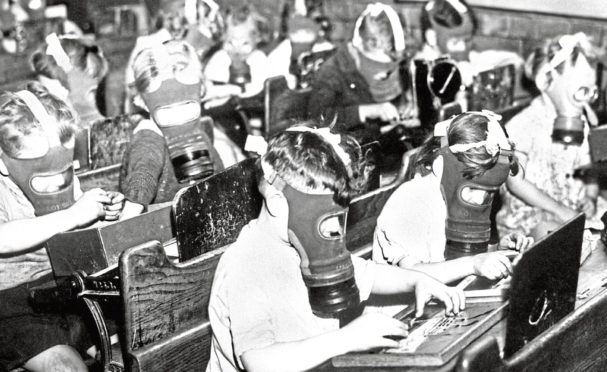I spent four years chiselling away at woodwork in secondary school, but was never any good. My abysmal classwork in the school workshop meant that if I was propelled into the current exams crisis I would be ungradable.
I wish my teacher had been mad enough to give me a higher grade simply to make me feel better, because I needed it.
I was quite prolific at turning out legs for stools in school woodwork class. But not a single one of them was any good.
I never successfully completed the first one, let alone the other three legs usually mandatory for a chair.
I must have attended 160 classes in woodwork, but cannot recall finishing any stool legs which met the exacting standards of our woodwork master.
It was a monotonous routine. I trudged into the storeroom to select a suitable stick of wood and went back to my bench to fix it into a vice.
I then selected a spokeshave, an instrument with blade and handles which is meant to caress wood into a smooth, bevelled shape. Its origins can be traced to prehistoric times, but in my hands it was like a bludgeon used by a caveman.
I still shudder at the thought of the spokeshave in my toiling hands. To this day I can’t bear to look at them in B&Q.
I slaved away like this for weeks, but always ended up binning the botched job before starting the process all over again.
Sometimes, what began as a good potential chair leg resembled little more than a bent matchstick after I shaved away at it.
Along with a few other BIY (botch-it-yourself) merchants in the making, I was largely ignored and left to get on with this fruitless exercise.
Another big problem was at around the age of 13 my handwriting was illegible. I stopped wearing glasses off and on due to teenage vanity – I wonder if that explains it all? My handwriting was so bad some teachers refused to mark it. Dire warnings were issued to my parents.
It wasn’t easy for them to help. Dad’s education was wrecked by the Second World War and mum arrived in the UK with her large immigrant Irish family having never been to school.
Devastation and upheaval in society caused by Covid-19 are often compared to the war.
In my dad’s day, one in five urban schools were destroyed by bombing and most of the rest were requisitioned to help the war effort.
His teachers were recruited into the forces and resources were scarce. Huge numbers of children stepped into adult life virtually illiterate and numerically inept.
Young people did not have a voice then.
Now they can make governments wobble and creak.
My saving grace was an innate survival instinct, which meant I was quite good at buckling down and passing exams.
While I was languishing at the foot of the class in coursework all year, I shot to the dizzying heights of top three in some subjects such as English in exams.
I don’t think they used algorithms those days. I’d heard of logarithms in maths classes, but tried to keep away from them.
Anyway, my trapeze antics preserved my status in the “A” stream class and avoided the ignominy of being booted “down” into the “B” class.
What seems clear now, looking back in the light of today’s exams farce, was that I survived because my case was assessed overall by staff who knew me.
I was judged holistically as an individual human being and not a number in a statistical exercise.
Education secretaries Williamson and Swinney looked like mad scientists in a kids’ cartoon who rush out of their laboratory screeching in desperation: “We’ve created a monster!”
Their algorithm swept like a statistical virus through lists of students without evaluating them as individuals, causing more damage to young people than Covid-19 itself.
We have been telling each other for months that kids are having a terrible time and might never get over it.
They deserved a cushion of support even although many teachers feathered it enthusiastically with a stuffing of inflated grades.
Whether that helps young people in the long run is anyone’s guess.
And what about next year’s cohort for the exams?
Will they deserve special dispensation for starting a lap behind in lost time?
And could they face unfairly much poorer grades next time around in comparison if they sit exams?
But when the current bunch finally enter a shattered post-Covid jobs market, who knows what fate awaits and if the curse of the plague follows their footsteps?
Even much-vaunted stars attached to A grades lose their shine eventually as young people move on and are judged differently.
Ultimately it’s about making the grade at work and how they cope with continuous challenges, setbacks or injustices in the big bad world – without a magic wand to make it all better.

